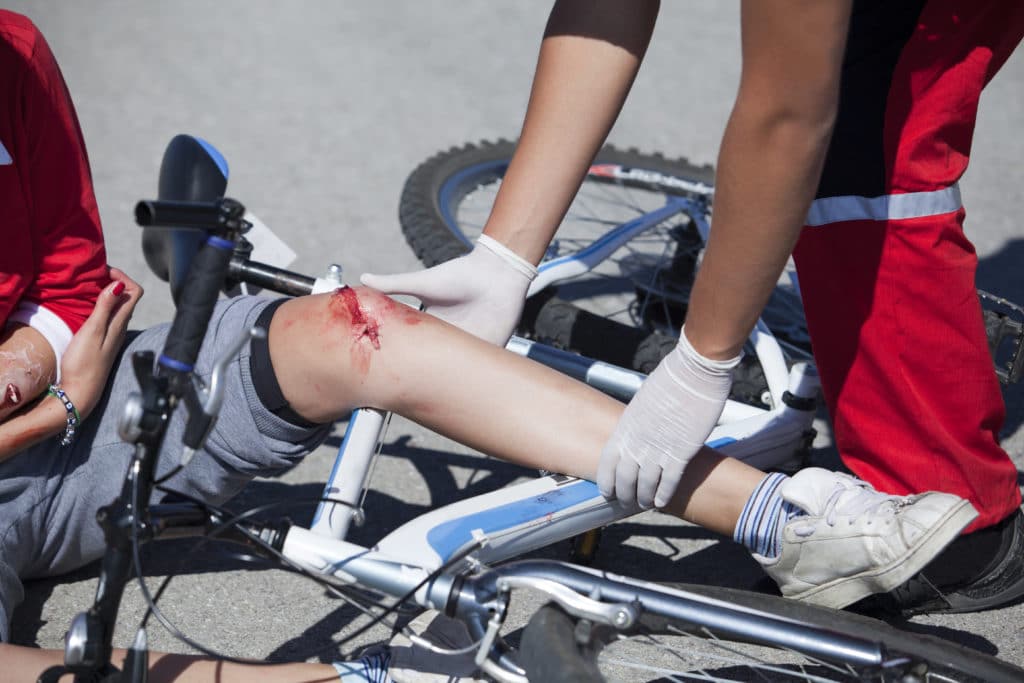Free Consultation
Free Consultation

At the end of 2018, 20.9 miles of protected bike lanes were added to NYC streets. Despite over 170 miles of bike paths, bike lanes and Greenways in the Bronx, cyclists are still being hit. In 2017, there were over 450 bicycle accidents in the Bronx.
Take the example of Carlos Vasquez. He was killed last year while riding his bike on Webster Avenue. A box truck driver struck him late in the evening and fled the scene.
Now, almost a year after his death, Vasquez’s family is fighting for safer bike lanes. Webster Avenue, where Vasquez was killed, has a lot of room designated for motor vehicle traffic, but no areas for cyclists. His family argues this needs to change.
In recent years, biking has become more popular. NYC reports that over 750,000 New Yorkers regularly ride a bike. Since 1980, the number of people who bike to work has more than quadrupled.
This can be attributed to many factors. First, business and congestion of roadways has turned many people away from driving. The same can be said for public transportation as subways and buses are increasingly crowded. Additionally, people are becoming more environmentally conscious and bike riding allows them to reduce their carbon footprint.
As the NYC Department of Transportation (DOT) attempts to keep up with this trend, new bike lanes are being created.
Studies show that having bike lanes increases the safety of cyclists. DOT reports that streets with them have almost 40% fewer crashes. With more bikers on the street, cyclist safety is very important. Therefore, DOT has pushed the initiative to improve and increase the amount of bike lanes. There are three different types of protected bike areas that have different rules.
Other than bike lanes, NYC does have some protected paths and Greenways. These paths are completely separated from all motor vehicle traffic. Additionally, certain bike paths have special hours deciding when they can be used.
Here are some roadway locations in the Bronx that have recently implemented protected bike lanes:
In 2018, a new protected bike lane was constructed alongside Van Cortlandt Park on Broadway. This two-way bike lane is popular among both young and old cyclists. Despite narrowing the traffic area by thirty percent, the road has become dramatically safer and speeding has decreased.
Besides these locations, there are many other roads that have bike lanes.
When bike riding in NYC, it is incredibly important to follow the biking traffic laws. Bicyclists must obey all traffic signals, signs and pavement markings. Additionally, biking is only permitted on streets, not sidewalks (except for riders under 12 years of age).
Follow these NYC rules to ensure your own and others’ safety while biking:
It is also imperative for drivers to obey laws pertaining to the bike lanes. Obstruction of bike lanes by a vehicle is strictly prohibited.
Biking accidents can happen for many reasons and cause many types of injuries. Although most bike accidents involving vehicles may be out of the biker’s control, there are some precautionary steps that can help avoid injury.
However, if you were injured in bike lane crash, you may be eligible to compensation.
For example, No-Fault benefits may cover medical bills and lost earnings if all the required information is filed within 30 days of the accident.
Also, a cyclist hit in a bike path or lane may receive compensation if a driver is proven negligent. In other words, you must prove that the driver caused the accident. To do so, it must be shown that a driver violated their duty of care not to injure others. This is made easier if the driver is caught disobeying traffic rules at the time of the accident, such as speeding or driving in a bike lane.
After showing negligence, you must prove that you sustained a qualifying injurybecause of the accident. This requires obtaining proper medical proof.
If you or a loved one was injured in a bike accident while in a bike lane, our experienced attorneys can help. For inquiries about the compensation you deserve, contact our attorneys by email or by calling (718) 364-4000 for a free consultation. You may also fill out one of our case intake forms, and one of our attorneys will get back to you as soon as possible.